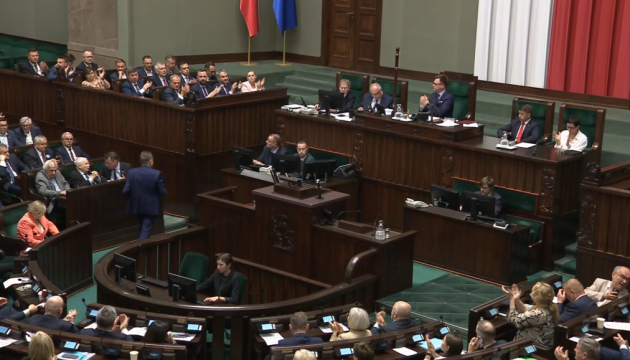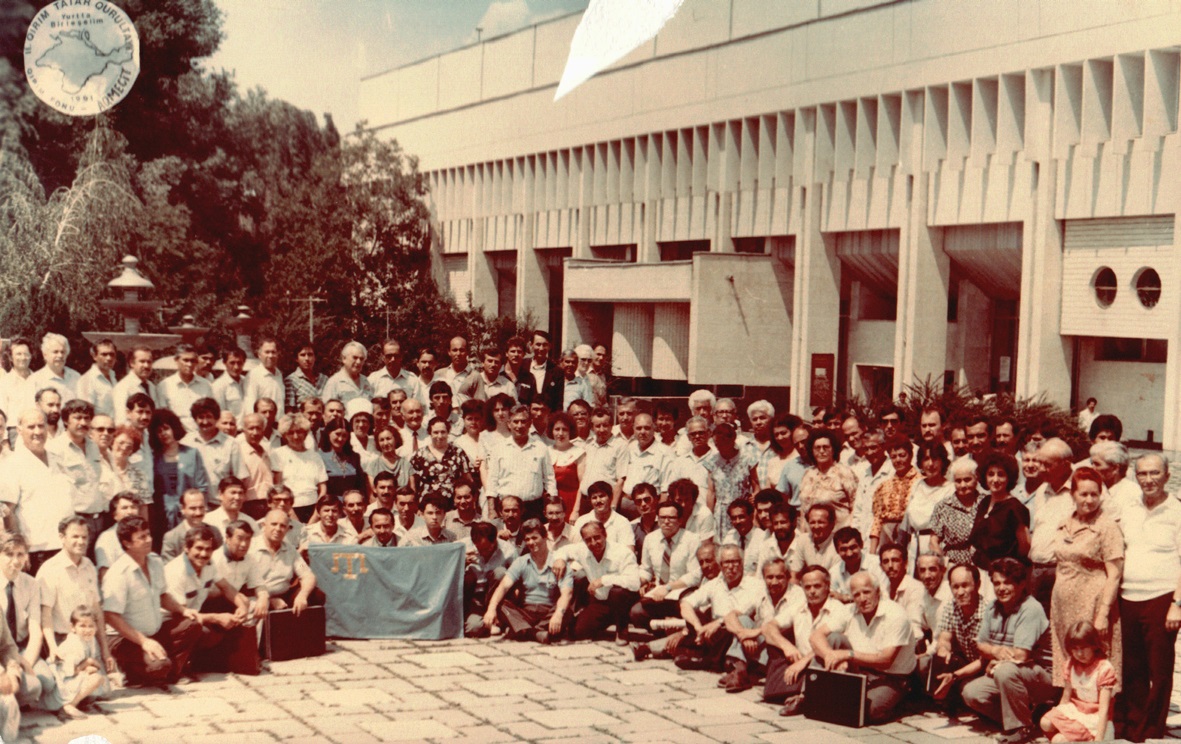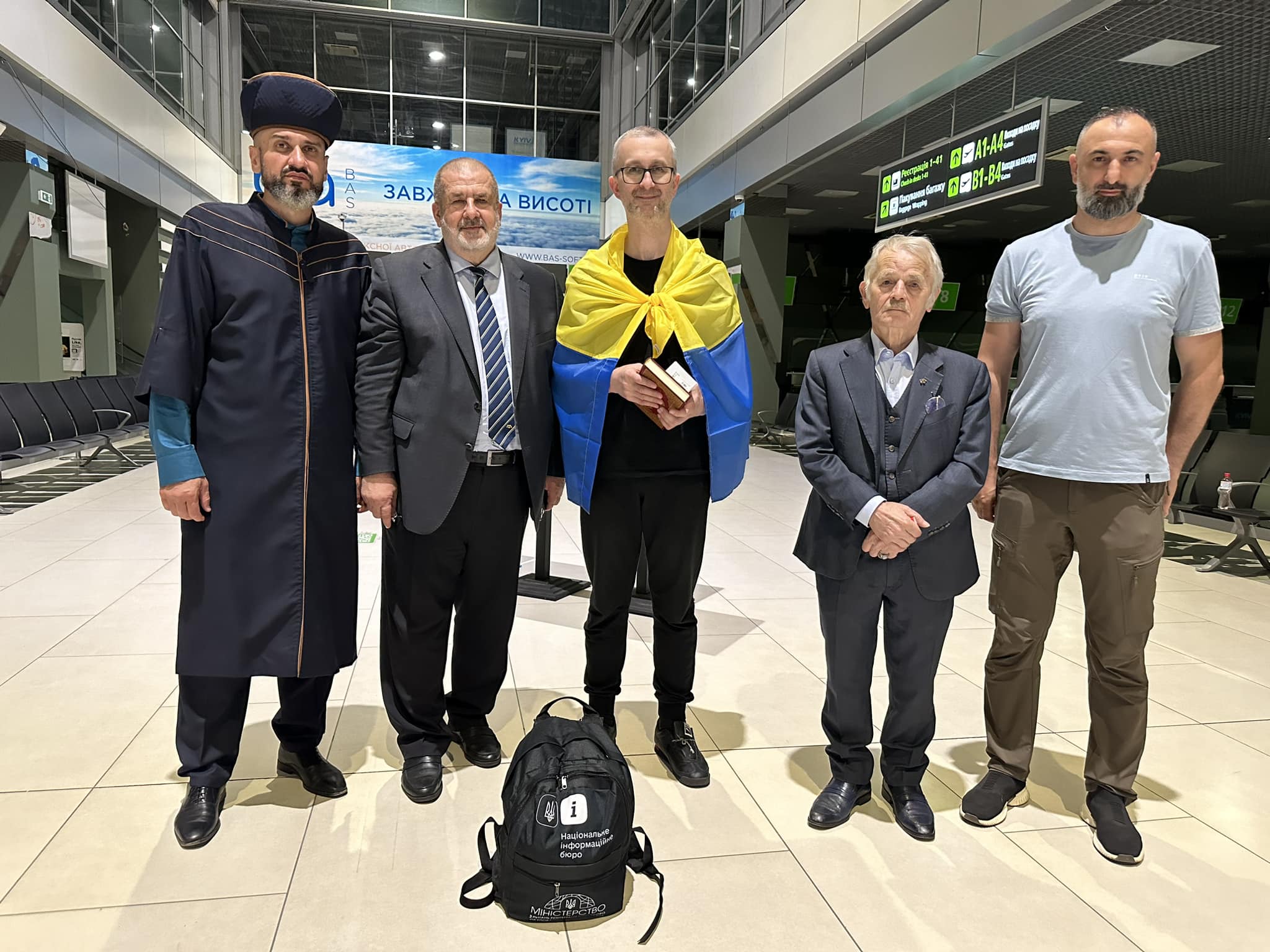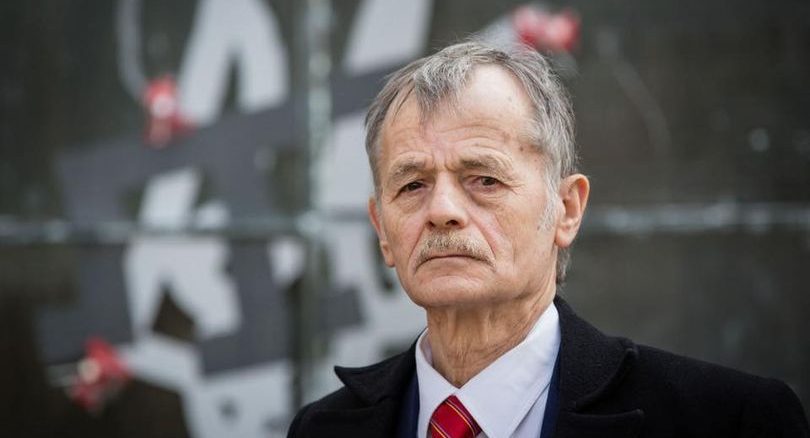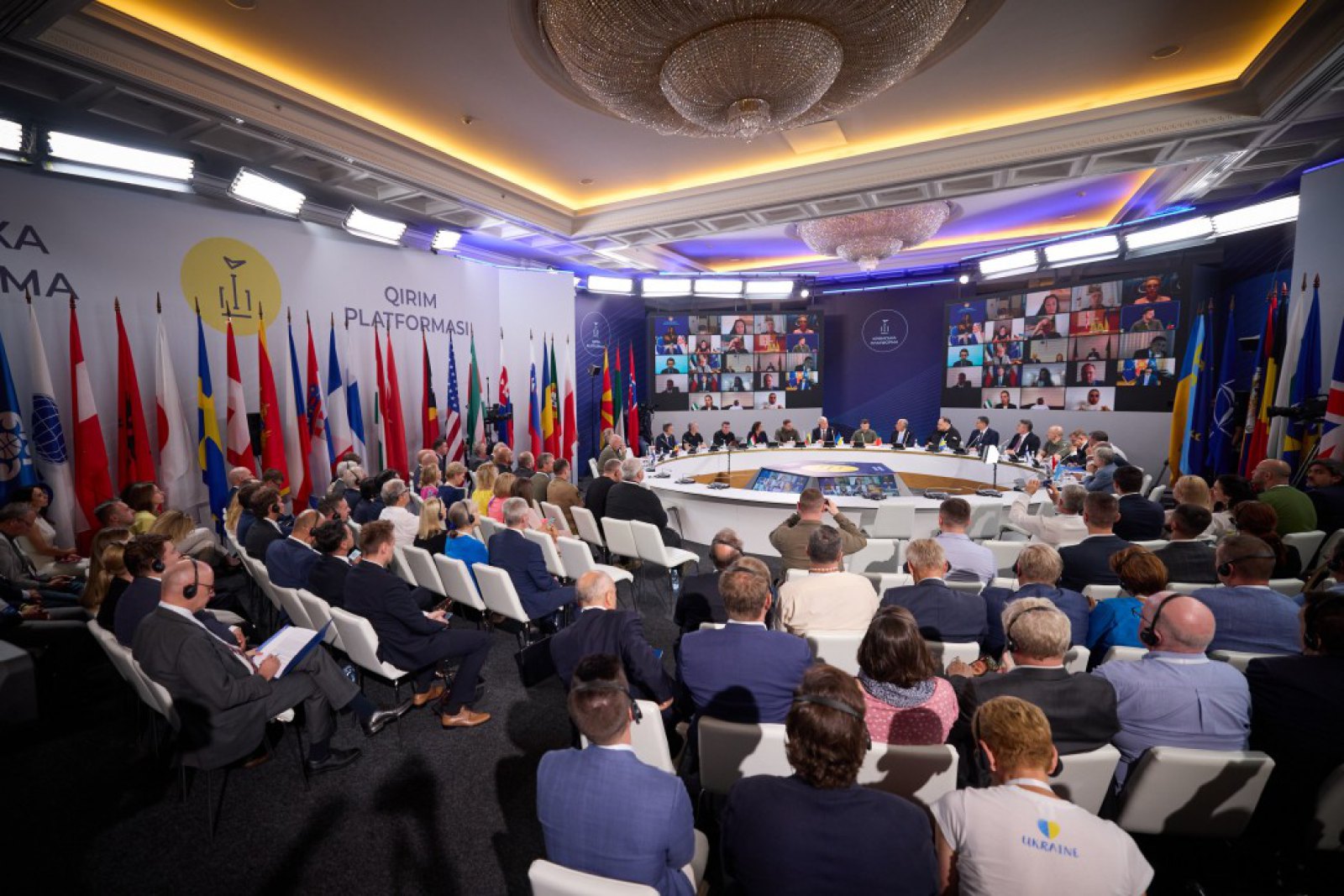«Many Crimean Tatars increase awareness of the fact that the state considers them as people of the second class», – Jemilev Mustafa
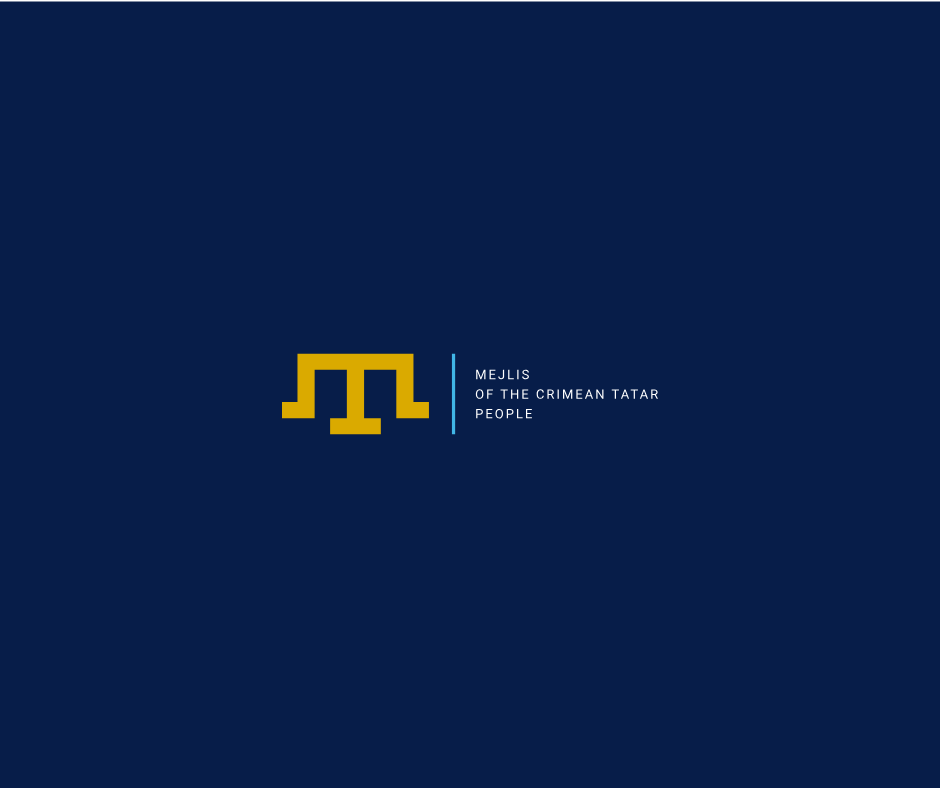
Dear representatives of states and international organizations, accredited in our country! Your Excellency! Ladies and gentlemen!
We have invited you to this meeting in order to inform about the situation of the restoration of the rights of Crimean Tatars, returning to their historical homeland – Crimea after the criminal deportation, genocide and almost a half-century exile. We are very grateful to you for your response to our invitation and participation in this meeting.
During our fight with the Soviet regime for our national and civil rights, the right to return to our homeland Crimean Tatars repeatedly addressed for help to the world’s public opinion. The moral assistance that was provided by the western democracies to those who fought in the USSR for their civil rights, including Crimean Tatars, the powerful radio stations, broadcasting to the territory of the USSR, the public actions of protests of the political and public figures of the democratic countries against the repressions of the Soviet authorities against the human rights advocates, the committees advocating the repressed persons, established in these countries, gave hope to the people, deprived of their rights to the restoration of justice, promoted to the establishment of the principle of non-violence in the human rights advocacy movement of the former USSR. Today we need help and assistance of the democratic countries and international organizations again.
20 years have passed since the collapse of the totalitarian Soviet regime and establishment of the independent states in the territory of the Soviet empire. Some of these independent states proceeded quite quickly on their way to the democracy and economic development, others not, some countries today, unfortunately, have regimes that not differ much from the Soviet one.
Of course, Ukraine does not belong to those countries of the post-Soviet territory that still suppress any manifestations of dissent. Otherwise, I couldn’t stand in front of you and tell you about the problems of the Crimean Tatar people. Nevertheless, there are quite many unsolved problems in our country that take its roots in the Soviet past. Ignoring of these problems not only impedes the democratic development of Ukraine, but threatens the civil peace and consent in the society. One of these problems, to our opinion, is the problem of the restoration of the legal rights of the indigenous people of Crimea – Crimean Tatars.
Soon after the collapse of the USSR, mainly due to Ukraine’s initiative, the CIS countries ratified “Agreement on the questions relating to restoration of rights of deported persons, national minorities and peoples” (Bishkek Agreement). But since its ratification some of the countries didn’t observe it at all and Ukraine observed it partly, motivating that some of its provisions do not comply with the laws of the country and demands of the Constitution of Ukraine that was adopted on June 28, 1996, though, it’s a common knowledge that in case of collision of ratified international agreements and the national legislation the priority should be given to the first.
Virtually, from the very first days of Ukraine’s independence we’ve been seeking for adoption of the law on the restoration of the rights of the Crimean Tatar people. At the same time, we also point out at the necessity to restore the rights of a range of the national minorities that were also subjected to the deportation in the USSR from the territory of modern Ukraine. Unfortunately, all our efforts, as well as the repeated requests of the OSCE High Commissioner for National Minorities in support of the adoption of the law didn’t have much success. Moreover, the law of Ukraine “On restoration of the rights of persons, deported on the national grounds” that was adopted in June 2004 was vetoed by the President and didn’t come in force. By the way, the law “On rehabilitation of the rights of the repressed peoples” was adopted in Russia as back as on April 26, 1991.
There is a paradox situation. From one hand, in fact recognizes the right of the deported persons to their return and provides certain assistance to their resettlement, from another hand, it avoids creation of the legal base, promoting the restoration of previously violated rights of the Crimean Tatar people. Correspondingly, Ukrainian state doesn’t return and doesn’t compensate everything that the deported persons were illegally deprived of in the result of the deportation, including houses and real estate.
However, it commits oneself to promote to the solution of the social problems of the repatriates, providing annual budget funds. However, the allocated funds are so miserable that they could cover only a small part of the urgent needs of the repatriates. For example, this year the state budget of Ukraine allocates only 23 million Hryvnas that is about 3 million US Dollars. These funds are not enough to build even one school. Though, we are approaching the end of the year we didn’t see a single Hryvna from this 23 millions. The budget of Ukraine for the 2012 allocates 25 millions Hryvnas for all the problems of the deported persons. These funds suppose to cover the needs of 300 Crimean Tatar settlements that lack water supply, roads, schools and medical facilities.
At the beginning of this year the President’s decree liquidated the State Committee of Nationalities and Migration that mainly dealt with the problems of the repatriates. Thus, the participation of the state in the process of return and resettlement of the repatriates in their homeland since 2011 in fact was reduced to a zero.
The rights of Crimean Tatars to land were gravely violated: both in agriculture and construction of individual houses. In the first case the injustice was built from the very beginning of the land reform and then was fixed during the adoption of the Land Code of Ukraine. The Article 25 provides that only the members of the organizations or those who worked formerly in these organizations and now retired could participate the free privatization of land of state, municipal, agricultural enterprises, organizations and institutions. Correspondingly, the majority of the repatriates were deprived of the possibility to participate in land privatization.
The repatriates meet great difficulties in the issues of allocation of land for construction of individual houses as well. In the first years of the beginning of the return of Crimean Tatars the authorities refused them under any pretext in allocation of land for construction of individual houses and at the same time started allocating free lands to citizens, belonging to other nationalities for country cottages and gardens. Only in 1990-91 they allocated 150000 land plots. The goal was to make Crimean Tatars face with the fact of the absence of free lands and thus stop the process of repatriation. In such conditions Crimean Tatars were made to squat the land that resulted in numerous clashes both with the law enforcement agencies and representatives of other nationalities, set against them. All that promoted to the increasing of the interethnic tension. The land conflicts continue until now.
Today around 280 thousand Crimean Tatars returned to their homeland – Crimea, representing about 13 per cent of the autonomy’s population. According to different estimations there are still 120-150 thousand Crimean Tatars that forced to live outside Crimea in the territory of the former USSR. They couldn’t return to their homeland and reunite with their relatives themselves, first of all because the CIS countries do not comply with their obligations under the Bishkek Agreement, providing that these countries have to promote in every way to their voluntary return.
There is a paradox again. From one side, the state, society express their serious concern not without reason about the existing negative demographic balance in the country, trying to stimulate the birth, using various mechanisms, including the financial one. On the other hand, they not only provide assistance to the repatriates in repatriation of Crimean Tatars to their homeland, but create artificial barriers to their return. Moreover, from time to time the high-rankers and politicians let themselves the statements, saying that one should stop the process of return of Crimean Tatars. Some of them even go further openly justifying the crimes, committed by the Soviet regime against the Crimean Tatar people.
All this takes place considering that during all years of Ukraine’s independence Crimean Tatars and their representative bodies positions themselves as a solid pro-state force in Crimea that do not let the peninsular to go into the abyss of political separatism warmed up from outside.
That is why many Crimean Tatars increase awareness of the fact that the state considers them as people of the second class.
The level of discrimination of Crimean Tatars in employment, especially in the state structures, not only decreased, but on the contrary increased significantly last years.
The electoral system, existing in Ukraine, despite of a range of the European countries does not provide any guarantees of representation of the national groups in the bodies of the state power. Under the proportional electoral system Crimean Tatars must join some all-Ukrainian political party, even if they do not share its ideology and program, because due to their small number and local settlement they can’t create the political party, eligible to participate in the elections. And even if they would manage to create it they will not have a chance to overcome the 3 percent barrier, even if each and every Crimean Tatar will vote for this party that is impossible in real life.
At the majoritarian electoral system the things are even worse, because Crimean Tatars live dispersed in Crimea and in fact there is no electoral district where they represent the number that would give them chances to elect their candidate not only to the Parliament of Ukraine, but even to the Verkhovna Rada of the autonomy. Consequently, under the mixed electoral system Crimean Tatars have chances to elect about 4-5 members to the Verkhovna Rada of the autonomy, consisting of 100 members, that is three times less than their percent rate in the autonomy. In particular this happened on the last elections of the bodies of local self-government in October last year. Under the majoritarian system Crimean Tatars can’t elect a single MP, as it was for example during the elections in 1998.
Crimean Tatars also have very low level of representation in the executive bodies of the autonomy. Representing 13 percent of the total population of the autonomy Crimean Tatars have only around 4-5 percent of representatives in the executive bodies. There are almost no representatives of Crimean Tatars in some agencies, such as SCU (Security Council of Ukraine), customs, court. No measures have been taken to eliminate this disbalance. On the contrary, for the last two years the representation of Crimean Tatars decreased even more. Many Crimean Tatars, working in public administration were dismissed and replaced by other people who were invited from outside Crimea. I think you can guess from which Ukrainian region they are.
The glaring discrimination could be explained not only by an imperfection of the electoral system that not only protects the interests of small nationalities, but also by quite high level of chauvinism and xenophobia, existing in the territory of the peninsular.
It is quite evident that many state officials have stereotypes about Crimean Tatars that were inserted to people’s minds back in the Soviet time.
Crimean Tatars are most of al concerned of the problem of preserving of their national identity and distinctiveness, preserving and development of cultural heritage that was completely destroyed by the Soviet regime. Crimean Tatars have to restore almost everything from the very beginning. For a half century Crimean Tatars were deprived of the possibility to teach their children their native language.
For 20 years of Ukraine’s independence Crimean Tatars managed to open only 15 schools where their children can obtain at least any knowledge of their native language, overcoming an active opposition of the local authorities. But only 10 percent of all Crimean Tatar children of school age can study there. The rest have to study at schools with Russian language of education. Considering that their parents were deprived of the possibility to study in their native language, consequently their children can’t obtain any knowledge of their native language in their families as well. In the result we face with the problem of complete loss of their native language by the whole generation, which is the main element of the national identity.
We are trying to rely on the assistance of the international organizations and governments of separate countries in construction of schools and cultural facilities, but on some incomprehensible reasons the ministries and departments of Ukraine concerned create various red tapes for obtaining of such assistance. All this creates an impression that the government headed for assimilation of the Crimean Tatar people, in other words they commit an action that is considered by the international law as a crime.
We are also very concerned of the lack of possibility to carry out the constant dialogue with the supreme bodies of Ukrainian authorities. In 1999 the President of Ukraine adopted the Decree on establishment of the Council of representatives of the Crimean Tatar people as a consultative body of the President of Ukraine. It was a certain form of the official recognition by the state of the representative body, elected by Crimean Tatars, because the Council had to consist only of the members of Mejlis, elected by the Crimean Tatars. It gave the President of the country the possibility to meet regularly with the representatives of Crimean Tatars, discuss with them the existing problems and give orders to various departments of the country for their solution.
After the presidential elections of 2010 the situation has changed. The Council of representatives was reformatted in accordance with the President’s order and persons who were not elected by anyone were introduced to it as “representatives of people”, but in fact they can’t “represent” anyone. Of course, the members of Mejlis who found themselves in minority in this renewed Council refused to be part of it. Thus, the existing mechanism of the dialogue of the people’s representatives with the supreme authorities was interrupted.
At the same time the various measures have been taken in order to split the Crimean Tatars, to discredit their representative body and support those people who were assigned by the authorities as “people’s representatives”.
In December last year the decision was adopted by the State committee on nationalities and religion (that was liquidated soon) to create the parallel spiritual board on the base of the artificially created few Muslim communities, promoted by the authorities and do not subject to the Spiritual Board of Muslims of Crimea. In other words, the measures that we have already seen in Soviet times.
The national convention of the Crimean Tatar people (Qurultay) came to the conclusion on its last session that the international forum has to be held on the problems of Crimea and its indigenous people in order to provide the international assistance to Ukraine in solution of these problems. After the adoption of this decision the delegation of Mejlis met with many political and state figures in Canada, USA and European countries, with leaders of a number of international organizations. I am pleased to inform you that our initiative as to calling of the international forum has been taken with understanding and willingness to assist in all these meetings. However, we haven’t received a clear response to our initiative from Ukrainian authorities whose participation in the forum’s work would be very important and necessary.
We hope that the diplomats and representatives of the international organizations, accredited in our country could assist us in calling of this forum.
Thank you very much for your attention.
